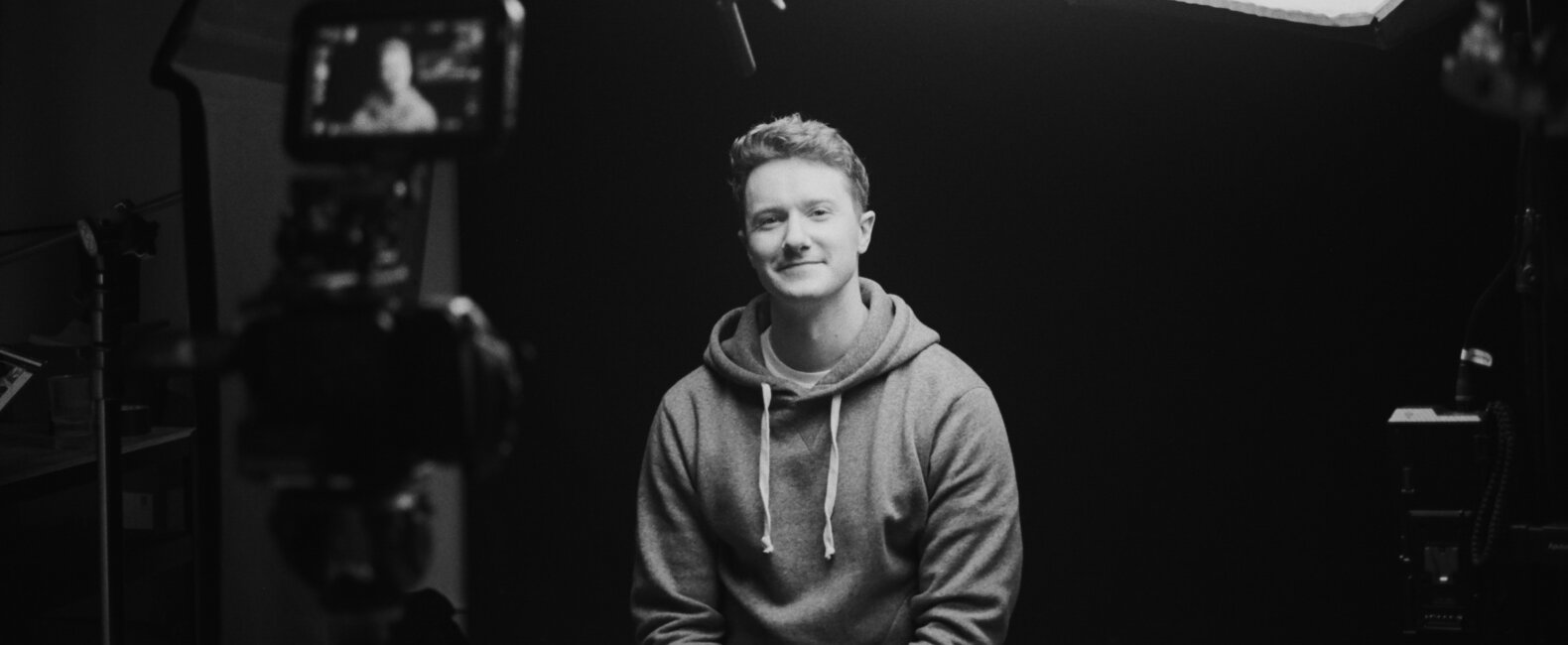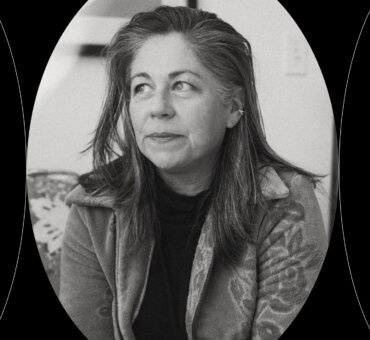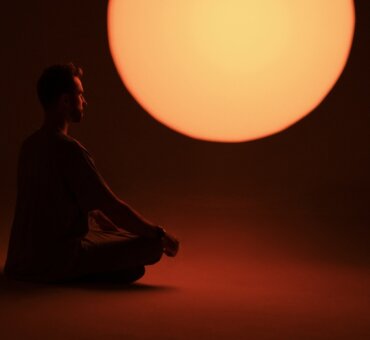Between photography, graphic design, and film, Chicago-based multi-media artist Steven Schultz is never short on inspiration. Read his interview below to hear more about what sparked his interest in filmmaking and how he utilizes Musicbed to find the right music for his films.
Musicbed: What sparked your passion for filmmaking/storytelling?
Steven Schultz: That spark belongs to my mom. I always admired the way she documented my family’s life, so in middle school, I bought my first point-and-shoot camera. I wanted to do the same thing for my family and friends; document life as it unfolded around me. Whether that was through moving pictures or stills, my core desire was to tell stories. Nearly 15 years later, using a camera is my full-time job, my favorite hobby, and a role my mom and I now get to share with our family.
What keeps you motivated and creatively inspired?
I love a good photo book or compelling film, but these days, I find the best motivation and inspiration in things that aren’t attached to my work. Mystery or fantasy novels, the latest Legend of Zelda game, date nights with my partner, Lora, spending time in the gym, playing my guitar, or journaling, to name a few. All of these things bring me a sense of peace, and in the fast-paced world of creative self-employment, that’s something I constantly yearn for. Fully unplugging from my typical 9-5 rhythm is what keeps me and my creativity healthy.
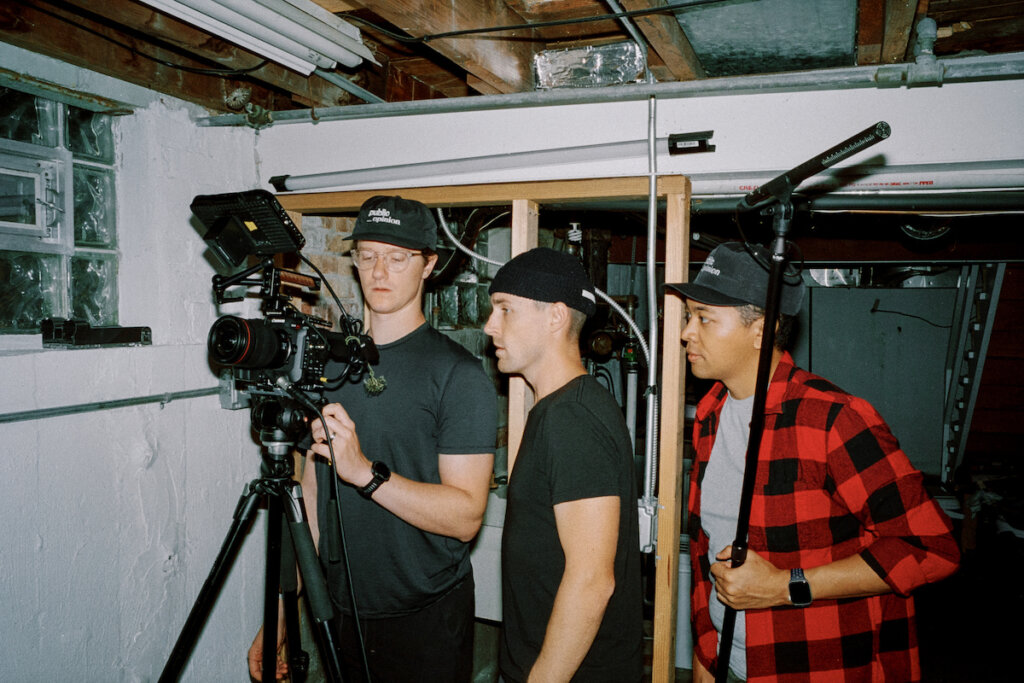
What makes a story visually appealing?
I think a consistent style is the most important element of an appealing visual style. You need to know what you’re trying to say, and how you’re going to say it before you even start. You could use an ARRI Alexa or an iPhone 15, but in the end, the way you light it, pace it and compose it are going to be the methods you use to visually communicate with your audience. Intentions have a much greater impact than the camera you use.
What role does music play in storytelling?
Music supports and often drives home, the emotion unfolding on screen. Movies would be a shell without their soundtracks — the score is, in my opinion, what immerses us in the deepest parts of the story. It’s that universal language that stirs something up in your core and works in tandem with the visuals to create something truly beautiful.
How important is music in your work?
It’s instrumental! (get it?) Dumb jokes aside, it’s truly at the core of what I do. Music was my first creative outlet; I played in several garage bands and church teams from middle school to college. In a lot of ways, I think it still sets the tone for my work. Writing music for so many years has helped me refine how I tap into emotion and tell a story, regardless of the specific medium I use. To put it simply — a project doesn’t feel complete until I find the right song for it.
What advice would you give other filmmakers/creators who are just starting their careers?
Work for free. Make connections and build relationships. Invest in passion projects. Create the work that you want to be hired for. Give generously.
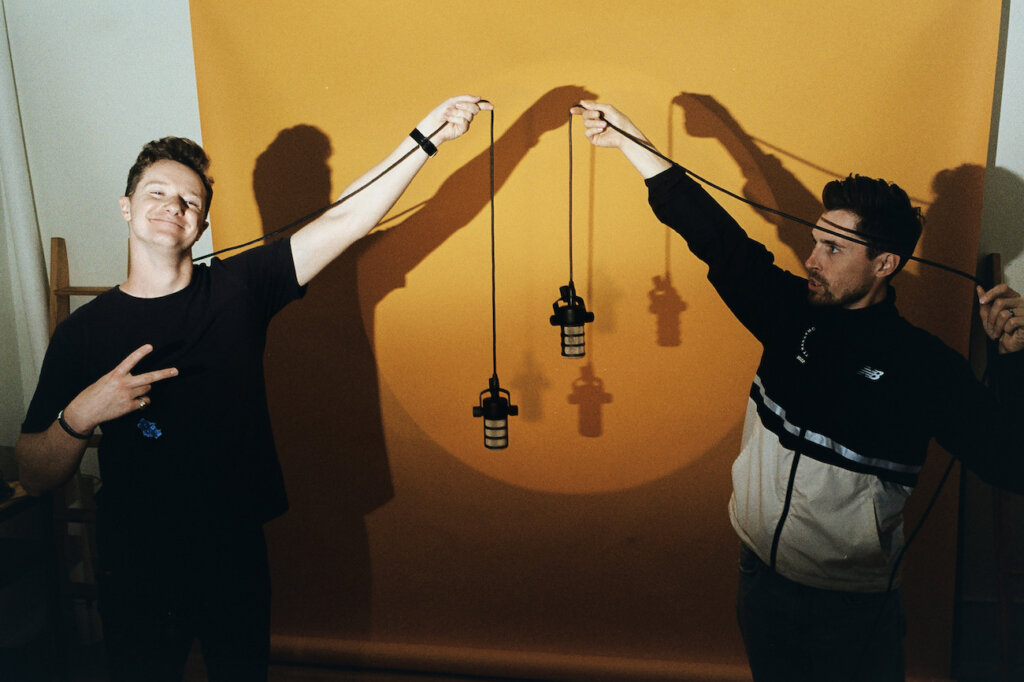
How do you find the balance between pushing boundaries creatively and delivering what your client wants or audience wants to see?
That can definitely be a tricky line to tow. Ideally, a client hires you because of your distinct style and everything is creatively fulfilling; but the reality is, sometimes we need to take on work because we need it. Because of that, I’ve tried to reframe my mindset on client work and treat it as a challenge to create the best, most true-to-me work I can, even if the deliverables aren’t exciting. The more I do that, in combination with passion projects for myself, the more aligned those two things become.
What’s your favorite project that you’ve worked on?
My favorite project that I’ve worked on is undoubtedly our studio’s first feature documentary. After two years of work, we’re finally beginning to plan premieres across North America to share the film in person with fans. The doc follows the life of photographer Joe Greer as he pursues a marathon time of under 2 hours and 40 minutes. What begins as a relatively straightforward plot takes a deeper dive as we unpack Joe’s past traumas, explore the intersection of art and athletics, and discuss the weight of forgiveness.
How do you search for music on Musicbed? What are some tips that you’d give other filmmakers to search on Musicbed?
Typically, I start with Genre and Mood to set the tone of my search and establish a baseline. I then dive into the Attributes tab to further cull things down. The real power, in my opinion, lies in the “Advanced” tab—that’s where I can get really specific and filter the key and BPM of the songs I’m discovering. This gives me much finer control over blending songs and making transitions smooth throughout a video or film. Bonus tip: I always download the Lyrical and Instrumental versions of a song, in case I want to weave between them.
Why do you utilize Musicbed in your work?
Musicbed has the best depth, breadth, and consistent quality of any licensing service I’ve used. As a musician, I really appreciate the way the art of music is kept at the center of everything Musicbed does. It’s something I value deeply in my own work—no gimmicks, no shortcuts, just quality. I think it’s telling that I’ll often just listen to the music on Musicbed; not for a project, but for pure enjoyment.
—
Explore a curated playlist of Steven’s favorite music to use in his videos—all available to license only on Musicbed.















































































